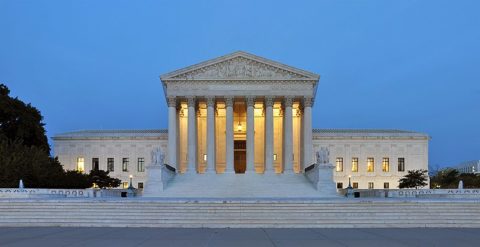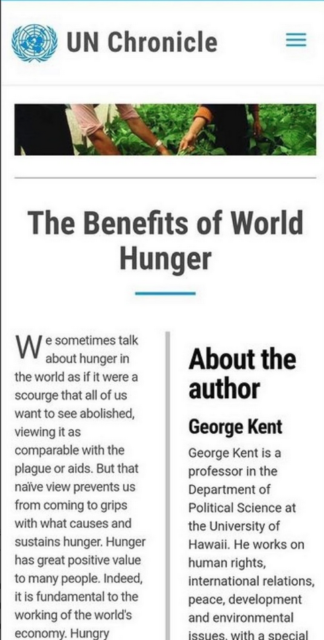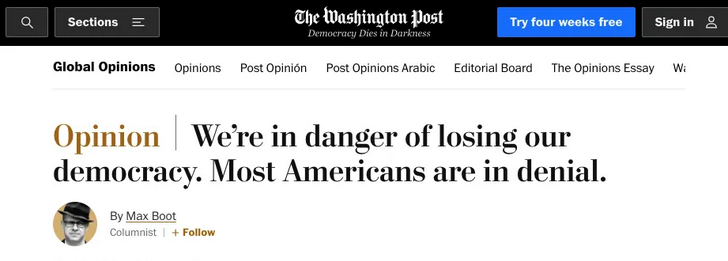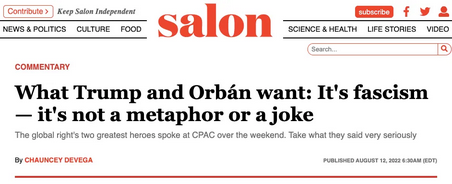It is important to remember that all government law enforcement agencies are bureaucracies. And all bureaucracies have certain behavioral tendencies owing to their institutional structure and the incentives that structure generates.
The great economist Ludwig von Mises analyzed these tendencies and incentives in his 1944 book Bureaucracy.
In that book, Mises identified “slowness and slackness” as among the inherent features of government bureaucracy that no reform can remove.
We have all experienced the “slowness and slackness” of government bureaucracy: with the post office, the DMV, the public school system, etc. That’s why the animated movie Zootopia had sloths working at the DMV and everyone got the joke. And police bureaucracies are no exception to this reputation.
Why is this so? In part, it is due to another indelible feature of bureaucracy: that it is, as Mises wrote, “bound to comply with detailed rules and regulations fixed by the authority of a superior body. The task of the bureaucrat is to perform what these rules and regulations order him to do. His discretion to act according to his own best conviction is seriously restricted by them.”
Sometimes a delay is simply due to the fact that the government employee is too tied up in red tape to respond in a timely manner. The timely response may be outright prohibited by the rules. Or the delay may be owing to Kafkaesque procedural mazes that first must be navigated or chains of command that must be climbed for permission.
[…]
Again, Mises considered such features of bureaucracy to be unreformable. Why? He argued that it is the only way that a government bureaucracy can be made at all accountable to the public. A bureaucrat with a free hand is even more dangerous than a bureaucrat with his hands tied.
“If one assigns to the authorities the power to imprison or even to kill people,” Mises wrote, “one must restrict and clearly circumscribe this power. Otherwise the officeholder or judge would turn into an irresponsible despot.”
Dan Sanchez, “How Bureaucracy May Have Cost Lives in Uvalde”, Foundation for Economic Education, 2022-05-31.
September 5, 2022
QotD: Why bureaucracies are inherently slow
September 2, 2022
US Navy to get its very own Zampolit cadre
CDR Salamander reports on the latest politically correct doings at the US Naval Academy, which he points out always filter down to the active duty fleet, both good and bad … and I don’t think he considers this particular initiative to be a good one:
The quasi-woke religion as promoted by the CNO provided all the supporting fires they needed and the commissariat decided to make hay while the sun shines.
You know the drill.
Do you want Political Officers, USNA’s own Zampolit? You’ll get them.
Want blue and gold Red Guards? You’re going to have them.
You want red in tooth and claw racism, quotas, and different standards based on self-identified racial groups? You’re going to have more of it.
First let’s pull some nice bits from the governing document; COMDTMIDNINST 1500.5, the “Diversity Education Program” from February of this year. You can read it at the link, or below the pull quotes;
BEHOLD!
1. Purpose. To provide guidance and designate responsibilities for implementation of the Diversity Peer Educator (DPE) Program.
…
b. DPEs support moral development at USNA by facilitating small group conversations that educate and inform midshipmen, faculty, and staff and foster a culture of inclusion across the Yard, resulting in cohesive teams ready to exert maximal performance and win the Naval service’s battles.
I’m not sure you could get more Orwellian … but they’re going to try;
4. Responsibilities
a. USNA Chief Diversity Officer. The Chief Diversity Officer is the final approving authority for all matters pertaining to the DPE Program and will ensure the program is in line with Department of the Navy and Superintendent’s guidance in reference (a).
a. DPE Program Manager. The program manager for DPE is an active-duty officer appointed by the Chief Diversity Officer. Faculty/staff from the Stockdale Center for Ethical Leadership, the Naval Academy Athletic Association (NAAA), or other cost-centers on the Yard will aid the program manager.
Yes, the football booster organization will “help” the Zampolits. Huh. You see that, yes? Pull that thread …
c. Brigade Dignity and Respect Officer. Reference (c) delineates the roles and responsibilities of the Brigade Dignity and Respect Officer (BDRO) who is accountable for the training, development, and qualification of the DPEs. However, the DPEs are organized and managed by the Midshipman DPE Lead.
d. Midshipmen DPE Lead. A midshipman selected annually by the DPE Program Manager and confirmed by the USNA Chief Diversity Officer. The Midshipmen DPE Lead is typically a First Class Midshipman. Responsibilities include:
(1) Work with the DPE Program Manager to ensure the mission of the program is met.
(2) Provide feedback and keep the DPE Program Manager informed regarding anything that may impact the DPE program.
(3) Serve as the senior DPE, and as the program representative to the BDRO.
(4) Lead and provide guidance to the DPE Midshipmen.
(5) Appoint and manage DPE leads in each battalion, company, varsity athletic team and club sport team.I’ll let you do the math on how many bodies “each” means. That is a lot of Zampolits. I guess MIDN have a lot of extra time.
Again, I want you to ponder the opportunity cost of this across USNA and how it relates to professional development.
August 28, 2022
Why do millions of people try to get into the US from Central and South America?
Elizabeth Nickson on what is driving so many people to leave their homes and trek north to the US (and, to a much lesser extent, Canada):
Mostly they are coming because Black Rock, the UN, the WEF are grabbing their lands, the more fertile the better, driving them from those lands and sticking them into tenement cities where they have to scratch like chickens for a living. Agenda 2030 is ravening under the radar in the US and Canada, where “civil society” in the pay of the government and environmental NGOs funded by oligarchs, is taking as much land and as many resources as possible out of the productive economy and shoving it into the land banks of BlackRock.
In the south, it’s not surreptitious. It is state policy to destroy their lives, to take their ancestral lands, whether it’s 40 acres or a half acre and leave them begging by the side of the road.
Climate Change is a complex financial mechanism which under the guise of “saving the planet”, is meant to save the predator class.
Which is not only morally bankrupt, but is dealing with a level of government and corporate debt that they know they cannot sustain. In the healthiest economy in the world, the US, all profits now are coming from either some mechanism of government subsidy – the $6 Trillion of the Covid catastrophe – or Collateralized Default Obligations. For instance right now Penguin is in court attempting to buy Random House. Why? Because they can borrow money to do that, buy back some of their stock and pay their shareholders. It will mean middle managers will lose their jobs, and marginal books will not be published, but the ravening maw of Jamie Diamond and Larry Fink will be satiated. For the moment. There is no other reason. Growth, real growth has stalled in every single enterprise.
This is how it works at the top of the class pyramid:
Last week on my island we were treated to the spectacle of well-heeled, highly educated, well-spoken older men and women arguing that the impoverished elderly, the young, and families starting out should not have housing because of climate change. Our island is 74 square miles with 10,000 residents. That means we have one resident per five acres.
Our government, the trust, had proposed the use of accessory buildings, brought up to code, for long-term rentals.
The extreme form of land conservation we practice has meant that housing prices have skyrocketed, so only the rich and the well-pensioned can afford to live here. A thousand or so working age people manage to make a living, generally via remote work. We have no staff for the schools, hospitals, businesses, restaurants. They cannot afford to live here.
About 200 people on our islands, mostly in their 70s and 80s, tightly aligned with the hysterical wing of the environmental movement work the process to stop any growth. Every new resident who pulls a permit is visited and threatened by a by-law officer. The woman who instigated this specific weapon, a former enviro bureaucrat from LA, demanded full time by-law officers for years until she won, after which she fought for aggressive enforcement.
With this one act, she set islanders against each other, creating conflict where there was none. This too is deliberate. A community divided is easily controlled.
Ring any bells?
August 27, 2022
The hallmark of modern government is the institutionalization of corruption
In the New English Review, Theodore Dalrymple identifies one of the unifying trends of governments throughout the western world:
One of the most remarkable developments of recent years has been the legalization — dare I say, the institutionalization? — of corruption. This is not a matter of money passing under the table, or of bribery, though this no doubt goes on as it always has. It is far, far worse than that. Where corruption is illegal, there is at least some hope of controlling or limiting it, though of course there is no final victory over it; not, at least, until human nature changes.
The corruption of which I speak has a financial aspect, but only indirectly. It is principally moral and intellectual in nature. It is the means by which an apparatchik class and its nomenklatura of mediocrities achieve prominence and even control in society. I confess that I do not see a ready means of reversing the trend.
I happened to read the other day an article in the Times Higher Educational Supplement titled “Can army of new managers help HE [Higher Education] tackle big social challenges?” The article is subtitled “Spate of new senior roles created as universities seek answers on addressing sustainability, diversity and social responsibility.” One’s heart sinks: The old Pravda must have made for better reading than this.
As the article makes clear, though perhaps without intending to, the key to success in this brave new world of commissars, whose job is to draw a fat salary while enforcing a fatuous ideology, is mastery of a certain kind of verbiage couched in generalities that it would be too generous to call abstractions. This language nevertheless manages to convey menace. It is difficult, of course, to dissent from what is so imprecisely asserted, but one knows instinctively that any expressed reservations will be treated as a manifestation of something much worse than mere disease, something in fact akin to membership in the Ku Klux Klan.
It is obvious that the desiderata of the new class are not faith, hope, and charity, but power, salary, and pension; and of these, the greatest is the last. It is not unprecedented, of course, that the desire for personal advancement should be hidden behind a smoke screen of supposed public benefit, but rarely has it been so brazen. The human mind, however, is a complex instrument, and sometimes smoke screens remain hidden even from those who raise them. People who have been fed a mental diet of psychology, sociology, and so forth are peculiarly inapt for self-examination, and hence are especially liable to self-deception. It must be admitted, therefore, that it is perfectly possible that the apparatchik-commissar-nomenklatura class genuinely believes itself to be doing, if not God’s work exactly, at least that of progress, in the sense employed in self-congratulatory fashion by those who call themselves progressives. For it, however, there is certainly one sense in which the direction of progress has a tangible meaning: up the career ladder.
August 17, 2022
QotD: Larry Correia’s proposal for a DoFYJS
A well known, yet denied, truth is that most government employees are entrenched and don’t do shit. They’re utterly useless.
Depending on the department you could fire a ton of them and all it would do is free up parking spaces.
Now, there are some government employees who work their asses off. Good. There are some government functions which are necessary. Great.
A great many don’t work, or the work they do is utterly pointless.
Ask any honest gov employee. They will admit this to you in private.
If they say no, everything we do is vital and everyone here is vital, they’re a liar protecting their budget, or one of the useless ones.
Most places, if there are 5 employees, 2 do 90% of the work.
Pournelle’s Iron Law says that as it grows over time any bureaucracy’s purpose will change from its original mission, to a new mission of protecting and growing the bureaucracy.
So now our Department of Labor by itself is bigger than LBJ’s entire federal government. This stuff never shrinks. It only grows. It’s an endless Leviathan.
The Leviathan needs to grow and protect itself against all threats, which is how you get super evil shit like the CIA and FBI meddling in US elections …
Or constantly expanding its powers into new places, like the #MinistryOfTruth
This Leviathan will find allies which help it expand in size and power. The more power/money you give it, the more it can bribe and co-opt other institutions. Academia, media, corporations, etc.
Whichever political philosophy is the most unprincipled will rock this arrangement
As the Leviathan grows in power, it will become more malicious, spiteful, and controlling. Dissent is crushed. Freedom dies.
@elonmusk is currently a speed bump in this, which is why the control freak contingent is super pissed at him.
The big question is, do the people own their government, or does the government own its people? If we are just assets of the gov, we can be spent freely, and bad assets get eliminated.The Leviathan is compelled to own EVERYTHING.
Slowing the Leviathan down isn’t enough. If you concentrate on stopping one part, others keep growing. Then when our bipolar country elects a new leader, those parts start growing again. Repeat forever. And it just keeps getting bigger.
So we’ve got to shrink the whole thing
If the GOP had a brain/spine (lol) they’d slash the shit out of everything. They’d starve the beast. They usually don’t, because they are total chickenshits. They’ll pay lip service to this, do nothing, or feed their favorite parts.
The DNC gleefully feeds the whole thing.
Trump’s biggest weakness was he surrounded himself with people who loved government, and loved expanding government. Of course all of those fucked him at every opportunity.
We need somebody who actively HATES the government to run it.
If I was President (ha!) I would only create a single new executive branch entity. The Department of Fuck Your Job Security.
The DoFYJS would consist of surly auditors, and their only job would be to go into other government agencies to figure out-
A. do you fuckers do anything worth a shit?
B. which of you fuckers actually get shit done?Then fire everyone else.
Right now it is pretty much impossible to fire government employees. The process is asinine. It is so bad that the worst government employees, who nobody else can stand, don’t get fired. They get PROMOTED. It’s easier, and then it’s somebody else’s problem.
But the DoFYJS don’t care. If your job is making taxpayers fill out mandatory paperwork and then filing it somewhere nobody will ever read it?
Fuck you. Gone. Clean out your desk.
We need to get rid of entire agencies. Gone. WTF does the Department of Education improve? NOTHING.
Gone. Fire them all. Sell the assets.
Any agency that survives this purge, move it out of DC to an area more appropriate to its mission. Do we need a Dept of Agriculture? Okay. Go to Kansas.
This will also cause all the DC/NOVA powermonger set to resign so I don’t have to waste time firing them
Oh, and right wing pet causes, you’re not safe. I worked for the Air Force. We all know that we could fire 1/3 of the GS employees tomorrow and the only noticeable difference would be more parking available on base.
Cut everything. We never do, because somebody might cry. Too bad. They’re called budget cuts because they’re supposed to hurt. Not budget tickles. Fuck you. Cut.
Shutting off the money faucet will also destroy the unholy alliance between gov/media/academia/tech.
Right now there is a revolving door, government job, university job, corporate board, think tank, the same crowd who goes to the same parties and went to the same schools and all that other incestuous shit just take turns in the different chairs.
Sell the fucking chairs.
Every entity that gets tax money inevitably turns into a pig trough for these people. Cut it all off. All of these money faucets ALWAYS cause some kind of financial crisis later anyway.
See the student loan crisis caused by the government, here is free money, oh college has become expensive and useless, so now we need more government to solve it. You dummies get to pay for it. Have some inflation.
It’s all bullshit.
Quit pretending any of this makes sense.
The only way the Leviathan shrinks is we elect people who actively hate the government to the government, and then only let them stay there long enough to fuck the government without getting corrupted by it.
The instant you see the small government crusader you sent to DC going “Oh, well maybe an unholy alliance between the state and OmniGlobalMegaCorp to develop a mind control ray is a good thing” FIRE HIM.
So there you have it. That’s my platform if you elect me president. Fire fucking everybody. And only give me one term. Thank you.
Larry Correia, portion of a Twitter thread reposted at Monster Hunter Nation, 2022-05-11.
August 13, 2022
August 9, 2022
When asking a simple, factual question is treated as a direct personal attack
Chris Bray explains why just asking for [certain] facts is enough to trigger people who think you’re somehow saying that they’re not “good people”:
Come back to the cultural sewer with me, just for a moment, because here’s the last time I’ll lay a quote on you from Klaus Schwab’s COVID-19: The Great Reset, from a discussion about public health measures to contain the pandemic:
This is ultimately a moral choice about whether to prioritize the qualities of individualism or those that favour the destiny of the community. It is an individual as well as a collective choice (that can be expressed through elections), but the example of the pandemic shows that highly individualistic societies are not very good at expressing solidarity.
Now: Pharmaceutical products sometimes fail, and sometimes cause serious harm, and it frequently takes a while for reality to get out of the dugout and take the field, so keep taking your FDA-approved Vioxx. It’s safe and effective! I rarely give up on books, but I gave up on Ben Goldacre’s 2012 book Bad Pharma about halfway through — for the same reason you’d stop eating a skillfully prepared shit sandwich. I felt like, yes, I get the point: Sometimes a drug is ineffective, sometimes a drug is outright harmful, and the manipulation of science and of regulatory agencies is more common than you would ever have wanted to know.
But it’s different this time, even while “this time” fits a very long pattern. As much as Big Pharma course corrections are always hard, this one will be infinitely harder. We’re not currently debating the efficacy of a pharmaceutical product, or of a class of pharmaceutical products; instead, we’re debating self-conception, social status, and cultural position. The claim “I don’t think these mRNA injections are as safe as they’ve been made out to be” is a character attack that threatens to take people out at the core like dynamite under a bridge: Are you saying I’m not a good person?
Bad Cattitude has been on fire lately on the topic of elite self-hypnosis and the descent into an “entirely hallucinatory landscape”. Consistent with this shrewd feline analysis, look again at what Klaus Schwab said about lockdowns and the suppression of economic activity in the name of public health: He said that shutting down our open societies was a “moral choice” about “expressing solidarity”. (My mask is for you, your mask is for me!) The discussion isn’t about what works, and has never been about what works. It has never been a discussion about the efficacy of anything; it’s a posture about social character, and always has been. Are you a bad, selfish person, or are you a good person who believes in kindness? The subtext about social class strikes me as too obvious to explicate, because mean people belong in their trailer parks in flyover country, and kind people are high-status. Review the lawn signs if you doubt this.
So when you question the little vial of fluid that goes into a syringe to be injected into your body, you’re not asking questions about the way a medical product works — or at least, you’re not asking questions that are perceived, by advocates of the injections (or the lockdowns, or the masks), as a discussion about safety and efficacy. You say, “Does it work? Is it safe?” — but they process it as an attack on their moral choice to express solidarity:
Are you saying we should have stood up for selfishness? Which means, if we bring the subtext to the surface, Are you saying we should have engaged in low-status behavior?
August 7, 2022
Making an International Standard Cup of Tea
Tom Scott
Published 9 Apr 2018As far as I can find, no-one has actually made a International Standard Cup of Tea — ISO 3103 or BS 6008 — for the internet before. Lots of people have talked about it, but that’s easy. Making one? That requires precision … and some specialist equipment.
You can buy a professional tea tasting set from this Amazon UK affiliate link: https://amzn.to/2qfbxyr
Thanks to Morag Hickman for letting me borrow her workshop for last-minute filming! She makes beautiful jewellery, like ring-keepers, dragon necklaces and rings that looks like ocean waves: https://etsy.com/shop/Errant
Update: someone has found an earlier ISO cup of tea on the internet, as part of a German video on tea tasting: https://www.youtube.com/watch?v=utwwk…
(more…)
July 28, 2022
Is the US Navy in crisis?
CDR Salamander outlines why he is very concerned about the current state of the United States Navy:

US Navy ships from the John C. Stennis and Nimitz Carrier Strike Groups with ships from the Bonhomme Richard Expeditionary Strike Group in the Gulf of Oman, 22 May 2007.
US Navy photo by Mass Communication Specialist 1st Class Denny Cantrell via Wikimedia Commons.
If you believe the threat from China is overblown, our Navy is well led, and that our fleet is big enough, then this is not the post for you. If you are concerned for all of it, grab a fresh drink and dive right in.
We are facing of something our nation has not had to seriously consider in well over three decades; we do not have free and unfettered access to the sea.
Even when Soviet submarines roamed the world’s oceans at will – though closely watched – and the Red Banner Fleet could send battle groups on cruises through the Gulf of Mexico, we had fair confidence in one thing – the Pacific was an American lake.
No more.
The leaders of the USN seem to have very different notions about what the Navy needs:
f you feel the Navy needs a larger share of the budget to meet the challenge of China, then you need to advocate for it. You need to fight for it … and when I say “you” I mean “we” and the most important and powerful parts of that “we” are our institutions; our maritime power institutions dedicated to seeing the USA remain the premier seapower.
Let’s start with the most obvious. Our uniformed Navy is itself an institution. It reports to its civilian leadership in the Executive Branch with oversight from the Legislative Branch. There are your big pixel maritime governmental institutions; the uniformed and civilian leaders in the Department of the Navy.
As reviewed yesterday, the CNO is engaged in a rather low-energy talking point about 500-ships, but in 2022 that is not even remotely achievable. He knows it, you know it, Congress knows it as well. A number is not an argument, and yet he is investing personal and institutional capital on this line that is almost immediately ignored if it is heard at all. Why?
In the last year one of his highest profile public appearances was when he shoveled heaping piles of personal and institutional capital in a fight defending a red in tooth and claw racial essentialist Ibram X. Kendi against who would normally be the US Navy’s natural allies in Congress. Ultimately he lost that battle and removed Kendi’s racist book and others from his reading list, but in the face of everything else going on in the maritime world, why?
What about the Vice CNO, Admiral William K. Lescher, USN? Maybe he could throw some sharp elbows for the maritime cause? Sadly, not. Just look at his exchange with Rep. Mike Gallagher (R-WI) back in March. He seems to be the “Vice Chief of Joint Force Operations” more than anything else. He is focused on something, but advocating for sea power is not it.
With the night orders from the CNO and VCNO as they are, if you expect any significant advocacy from the uniformed Navy leadership who report to them for — checks notes — the Navy, you are going to have to wait for a long time, time we don’t have. It isn’t going to happen.
[…]
Take a moment and ponder – when was the last time you heard the SECNAV or Under out front on The Hill or to the greater public about our maritime requirements? Yes, I fully understand what goes on behind closed doors, but that slow roll in an ever-slower bureaucracy infested with scoliotic nomenklatura is well past being of use. The American people must be provided the information and motivation to understand how their entire standard of living – and to a great extent their freedoms – is guaranteed by our mastery of the seas. Is even a rudimentary effort being made in this regard?
Just look at the USN’s YouTube feed – a primary communication device for the American people. What has the SECNAV talked about there this year? LGBTQ+ Pride Month, Juneteenth, Army birthday, Asian-Pacific Islander Month, Mental Health Awareness Month, Women’s History Month, carrier air birthday, and Black History Month.
There you go. There’s your communication. Dig harder if you want … but if you read CDRSalamander and you are not readily aware, then imagine the general population’s situational awareness of the dragon just over the horizon.
July 27, 2022
Baghdad Biden speaks
Chris Bray recounts the story of a local government attempting and — for a while — succeeding with the Baghdad Bob blanket denial strategy:
In the Deep Blue suburban town where I live, our city government has been stumbling through a series of crises. For a couple of years, employees fled from City Hall like the building was on fire, and nowhere was the crisis more acute than in the finance department — where we had five directors in a little over two years, and lost most of the other staff, including one who sued the city over her departure. There was a year when we couldn’t pass a budget, because the budget proposal was such a shambles, and a discussion at a meeting of an advisory commission in which a commissioner asked one of the many finance directors if the numbers in the city’s bank accounts matched the numbers in the city ledger. (Try to guess the answer.)
Recently, an ad hoc committee of local citizens — all finance professionals — wrote a report on the period of crisis, and presented our city council with a recommendation that they hire someone to do a forensic audit of the city’s accounting during those years. The council scheduled the report as a “receive and file” item, placing it on a 28-item agenda as, you’ll never guess, item #28. Then, in a brief discussion that began after midnight, they said that the report was nonsense and hearsay. The end.
So, yes, there was no financial crisis in our city during the years when we had five finance directors, when “permanent” finance directors left after a few months, when we lost most of the finance department staff, when we couldn’t pass a budget, and when we had no idea how much money we were actually supposed to have in the bank. Our city council says so. “These are not the ‘droids you are looking for.”
Meanwhile, we’re not in a recession, or even facing the risk of a recession, because that’s not Joe Biden’s view, and because the technical definition of a recession is very complicated.
Also, the inflation of 2021 was transitory. Zipped right by! Also, Joe Biden has a plan to shut down the virus.
The war in Ukraine is SHUT UP SHUT UP SHUT UP, the economy is SHUT UP SHUT UP SHUT UP, the continuing Covid-19 “emergency” is SHUT UP SHUT UP SHUT UP, and the mRNA injections are REALLY REALLY SHUT UP. Actually, the way experts measure this is really complicated, and technically …
July 23, 2022
July 13, 2022
Creating an American Homo Sovieticus
Chris Bray has had to visit a large urban hospital frequently in the last little while and he’s noticed just how readily some people have adapted to the pandemic world situation:
Observers of the Soviet Union noted the presence of Homo Sovieticus, the species adapted to the culture: “a double-thinking, suspicious and fearful conformist with no morality”. It seems fairly clear that the Blue Zones are birthing a version of this creature, well accustomed to a life centered on compliance rituals and the production of the Required Documents™.
But Soviet subjects usually found a layered response to the compliance culture, with backdoor deals and systems of baksheesh. Factories and offices evolved a set of people who learned the skills of a fixer, greasing supply chains and easing problems with a little something for your family. I just happen to have a couple of extra cartons of cigarettes, friend, and about that delayed shipment of ball bearings …
So one of the things that’s interesting about Large Urban Hospital, where the rules are the rules and I’m sorry, sir, that’s our policy, is that the rules aren’t entirely the rules, and the luck of the personnel draw sets your course. I already know the helpful front desk check-in staff — Hi, welcome back! — and I already know which one scowls at the computer, and asks if you’re sure you cleared your visit in advance, and says she’s going to need to make a few phone calls to check on your paperwork, and I need to see those test results again (she says, pulling on her scowling at documents glasses). Checking in at the lobby desk can take thirty seconds, or it can take ten minutes; it can be miserable and hostile, or it can be relatively pleasant and human. But in both cases, the person behind the computer, and the people who put them there and provide them with the systems that govern their work, believe that the work is standardized, and everyone at the check-in desk is enforcing the rules.
We have literally insane systems of ritual behavior, but within those systems we have people who are still people, and people who have very much embraced the compliance behaviors. There are dehumanizing institutions, and holy shit are there people who like it.
July 10, 2022
Seven easy steps to fix military procurement
CDR Salamander wrote these for the US military, so some of them are far out-of-scale for tiddlers like the Canadian Armed Forces, but the spirit is still valid and relevant:
1. No weapon system presently under production will be allowed to stop production until its replacement is under production itself.
2. Acknowledge we have lied to ourselves for decades actual magazine requirements in war (use “new” lessons from the Russo-Ukraine War for the tender to save face — whatever works) — and accelerate/restart production of everything from ASW weapons to strike weapons of all types.
3. Acknowledge that we do not have enough weapons — specifically anti-air and land attack — on our warships. Every war proves this and recent experience tells us this.
4. If I take away your access to satellite VOX & DATA and you cannot navigate and fight, you are not a wartime asset and your funding sent somewhere useful.
5. Accelerate capacity for repair away from fleet concentration areas, preferably afloat. Maximize production of sealift and begin the process to replace the C-5M.
6. If your combat unit does not have organic, robust unmanned ISR under the command of your unit’s commander, you are worthless in the war to come and you will have such a capability by FY25 or you will be disestablished.
7. Pass the Salamander Bill: no General of Flag Officer shall, for a period no less than 5-yrs from retirement date, receive compensation of any kind or anything of value from any publicly or privately held company that does business with the federal government, nor shall they serve in any non-paid positions with same.
Yes, #7 is important. If you have not realized why in 2022, you are part of the problem.
July 4, 2022
A first, tentative step to reining back the juggernaut that is the modern administrative state
Brad Polumbo has words of praise for US Supreme Court Justice Neil Gorsuch:

Panorama of the west facade of United States Supreme Court Building at dusk in Washington, D.C., 10 October, 2011.
Photo by Joe Ravi via Wikimedia Commons.
“Vesting federal legislative power in Congress [rather than bureaucrats]”, Gorsuch writes, “is vital because the framers believed that a republic — a thing of the people — would be more likely to enact just laws than a regime administered by a ruling class of largely unaccountable ‘ministers’.”
But what about those, like dissenting Justice Elena Kagan, who say that federal bureaucrats need wide latitude because Congress is failing to, in their view, adequately address climate change?
“Admittedly, lawmaking under our Constitution can be difficult,” Gorsuch acknowledges. “But that is nothing particular to our time nor any accident.”
“The framers believed that the power to make new laws regulating private conduct was a grave one that could, if not properly checked, pose a serious threat to individual liberty …” he said. “As a result, the framers deliberately sought to make lawmaking difficult by insisting that two houses of Congress must agree to any new law and the President must concur or a legislative supermajority must override his veto.”
With an empowered, unelected bureaucracy, “agencies could churn out new laws more or less at whim”, Gorsuch adds. “Intrusions on liberty would not be difficult and rare, but easy and profuse.”
This isn’t hypothetical speculation — it’s exactly what we’ve seen under the status quo.
For a glaring example, just consider the Centers for Disease Control’s pandemic-era “eviction moratorium”. The federal agency unilaterally declared that evictions nationwide were prohibited in many circumstances by citing an old statute that gave the CDC director the ability to order in specific places “such measures to prevent such spread of the diseases as he/she deems reasonably necessary, including inspection, fumigation, disinfection, sanitation, pest extermination, and destruction of animals or articles believed to be sources of infection.”
They went from that to a nationwide “eviction moratorium”. Stretch, much?
That’s right: Unelected government officials effectively commandeered the nation’s rental market, which caused tremendous dysfunction, trampled over property rights, and sabotaged the supply of rental housing. (For which prices are now surging. Shocker!) And, it was years before the courts finally stopped them and struck down the “moratorium”.
















